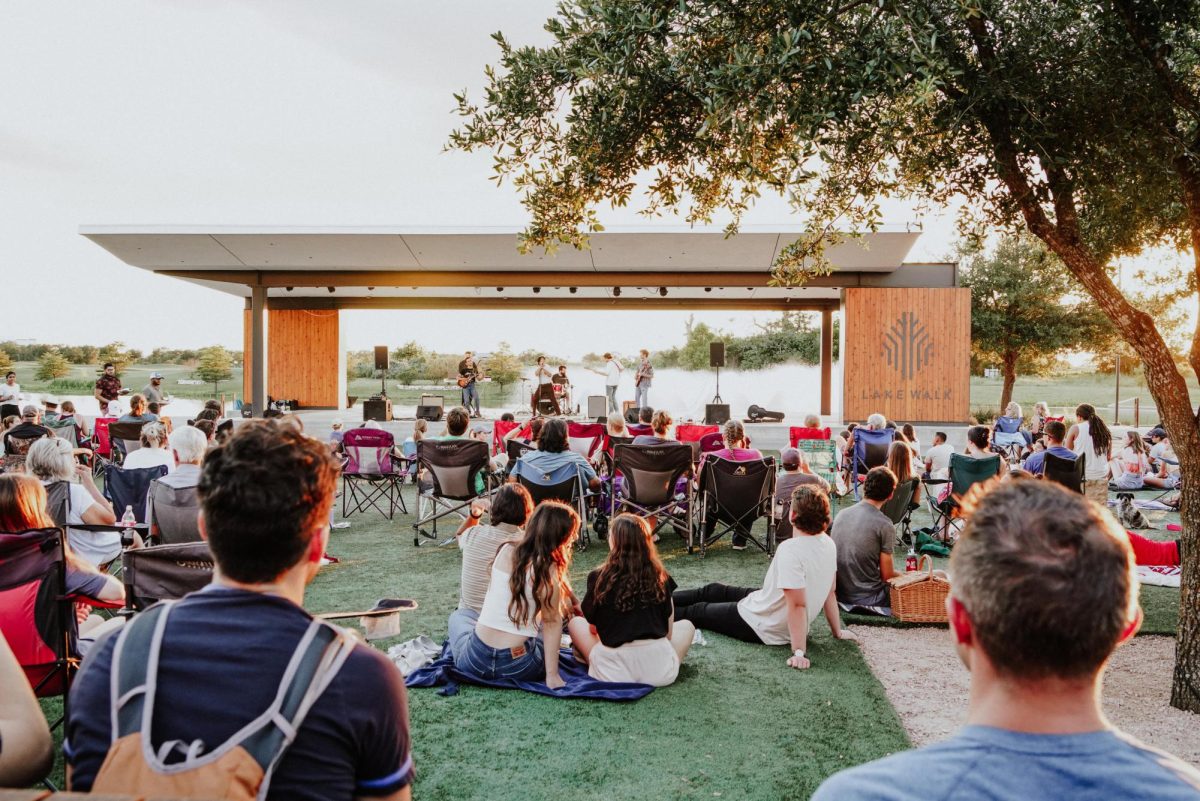From South Beach to Beyonc?’s acclaimed lemon detox drink, diet fads have come and gone over the years, filling refrigerators and pantries across the nation with spices, veggies and strange juices. The newest fad to hit kitchens may be a little simpler than past diets, bringing eating habits back to the stone ages.
The caveman diet, the hunter-gatherer way of life, the Stone Age diet – this is the new fad to sweep America. The Paleolithic Diet, more commonly known as Paleo, encourages people to eat more like their ancestors – eliminating grains, dairy, legumes, processed foods, starches and yes, even alcohol, from daily consumption. This is all done in hopes of having a clean-eating lifestyle, allowing the body to digest food more easily than the typical diet.
Is Paleo the new diet craze, doomed to fizzle out in a few years when something grander comes along, or can this diet really become part of a healthy lifestyle?
Meghan Windham, A&M’s dietician in the Student Health Services, said that she believes Paleo is another “fad-type diet.”
“When anyone says to me, ‘I want to diet’ or ‘I am on a diet,’ I say ‘Run,'” Windham said. “It is not a lifestyle change. There can always be some benefit to cleaning your food up, like leaner meats and less processed foods. I agree that Paleo is good in that sense. But when you cut things out like dairy and grains, you are cutting out key nutrients such as iron, B12 and folic acid: things your body needs.”
Windham said she does not “endorse Paleo” but said it can be used as “the base to build from.” If you remove foods from your diet, she said, you simply end up craving them later.
She also said she feels that Paleo is really no different than diets like Atkins and South Beach.
“With any type of specific diet, you are planning meals or having set guidelines,” Windham said. “‘Biggest Loser‘ is an example of this. These people have regulated food intake and exercise monitored everyday but years later, after they are off the show, most everyone gains their weight back. Eating healthy has to be something you can sustain for the rest of your life. Is Paleo a lifelong process? Most college students don’t think about the future, it’s all about the here and now. Paleo thinks in a short term weight loss, not for your future.”
Windham said she sees many students with varying degrees of eating disorders, and when food groups are being entirely eliminated, disordered eating patterns can form.
“Restricting food groups can lead to eating disorder behaviors,” Windham said. “If you are cutting things out completely, you become so rigid mentally and that can be dangerous.”
According to Windham, eating is about moderation, not elimination.
Corey Burnham, who graduated in 2011 with a degree in allied health, said he recommends the Paleo Diet, having lost 60 pounds since April 2012 because of it.
“I first heard about Paleo through a friend,” Burnham said. “She had been doing a cross fit class with a 30-day challenge to do strict Paleo. She wanted to be fit and wanted to lose some weight so we decided to do it together.”
Burnham admitted that Paleo began as a short-term weight loss plan, but developed into a long-term lifestyle modification.
“I think initially it was short term until I reached a desired weight,” Burnham said. “Then three months into it, I didn’t want to call it a diet anymore; you don’t diet, you make a lifestyle change. I don’t like the word diet. Instead of saying Paleo diet, I just said Paleo. It is not just short term, it has turned into a long term deal.”
Paleo was the start for Burnham to get on the right track to an entirely new lifestyle.
“My goal through Paleo is just to stay away from processed foods and eat only natural things,” Burnham said. “Really strict Paleo says you should only eat organically, like grass fed beef with no growth hormones. I am not that intense though.”
He said a good rule of thumb for eating Paleo is to have two servings of vegetables for every serving of meat consumed.
“I think Paleo is a diet people can stick to and see results,” Burnham said. “There are a lot of people that cannot exhibit self-control. With weight loss though, your caloric expenditure must exceed caloric intake. I have not had to count calories through this entire process. I just control the food that goes in my system.”
Kimberly Roberts, a curriculum & instruction graduate student, said she started eating Paleo in 2010 when she joined a women’s summer class at Black Box Gym in College Station.
“I started doing CrossFit there, only knowing about it; I had no idea about the diet part,” Roberts said. “Most CrossFitters do Paleo, or at least know about it. My instructor told us we were starting the diet portion the next day and I said, ‘The what part?’ I didn’t cook – I lived off of frozen pizzas and Easy Mac.”
She said the point of her first 30-day challenge, called “The Whole 30,” was to curb cravings and do a hard reset of the body.
Immediately, Roberts said she noticed a difference in her overall health.
“Obviously I lost weight because I was eating right and working out, but my skin cleared up, I noticed that a lot,” Roberts said. “I started sleeping a lot better, my energy levels went way up, I wasn’t craving things, and I wasn’t hungry.”
Since she started in 2010, Roberts has lost 25 pounds. As an additional benefit, Roberts said Paleo helped her learn how to cook.
“I didn’t really cook beforehand, so when I was learning to cook it was all Paleo, so it didn’t bother me that I wasn’t making something like Paula Deen’s casseroles because I never knew how to make those kinds of things in the first place,” Roberts said. “I also never really ate vegetables before this. But now I like things like broccoli: your taste buds will change.”
Roberts also said she doesn’t consider Paleo a “diet.”
“The Paleo Diet is a misnomer because it is not supposed to be a diet, it is supposed to be a way of life,” Roberts said. “When you don’t put anything artificial in your body, you feel so much better. ”
She did admit this lifestyle could be difficult for a college student.
“It gets hard when you go out to eat with friends at restaurants because all you can get is a salad and you end up spending eight dollars, only to realize you’re just buying lettuce and a carrot,” Roberts said. “That does get old in my mind. Nicer restaurants make it easier because you can sit down and get a meat and veggie, which is Paleo.”
Kyra Jasmin von Oertzen, senior English major, started Paleo halfway through this semester, and said she has “a lot more energy.”
This semester, Oertzen is taking 19 hours, which made her realize she needed all the energy she could find.
“I wanted to eat healthier, especially because of my schedule,” Oertzen said. “I haven’t had grains in two or three weeks. Given the science behind Paleo, it should work for everyone. Some people can’t give things up like dairy and grains but I would at least encourage people to try it.”
Dieters follow caveman regimen
April 17, 2013
Donate to The Battalion
Your donation will support the student journalists of Texas A&M University - College Station. Your contribution will allow us to purchase equipment and cover our annual website hosting costs.




















